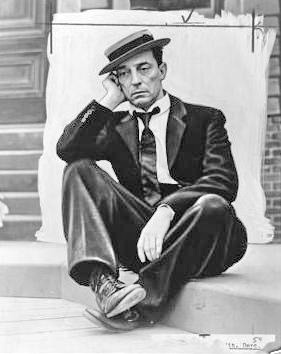
TWAS THE KIND WORD YOU SPOKE
THAT SAVED ME."
"ROSA! Look at that horrid drunken man, sitting on the curbstone; do come across the street, for I wouldn't pass him for anything." And Mary ran away as fast as her feet could carry her. Now Rosa was afraid too; but the song she had been learning that day was still fresh in her memory.
"Speak a kind word when you can," she had been singing, and the man before her, with his head bent on his hands, looked so forlorn and wretched, so sadly in need of a kind word, that she went a little nearer, and said timidly, "Poor man! I am sorry for you. Can I do anything to help you?"
He raised his head, looked at her in surprise, and his haggard face and despairing eyes almost caused her to cry for pity.
"Little girl, your kind words have helped me already. I never expected to hear any again, for I am without a friend on earth."
"But God will be your friend, if you will ask him," said Rosa, softly, going nearer still, while Mary beckoned anxiously for her to come away.
"Did you ever ask him?" continued Rosa.
"No; I have been sinning against him all my life," groaned the man.
"Poor man! Let God be your friend. He can do everything for you. I am your friend, but I can't do anything but speak a kind word."
"Darling little girl, that kind word has saved me.
Good-by."
And he held out his shaking hand. Rosa was not afraid now, and she placed her plump little hand in his, and as he bent down and kissed it, two hot tears fell upon it. Then he went away, and Rosa rejoined her companion.
"O you queer creature! How could you let that awful-looking man take hold of your hand? I thought he was going to eat you up when he bent down his head," was Mary's greeting.
“I was afraid at first, Mary, but I am so glad I spoke to him. Only think! He says my kind words have saved him."
"Well, he never would be saved if it depended on my kind words, for I always run away from such folks," replied Mary.
Years after, a stranger, a noble, silver-haired old man, was addressing a Sabbath-school, and telling the scholars always to be kind to the friendless and distressed ones, especially the drunkard; "for when I was friendless, and sinful, and wretched," said he, "God sent a dear child to speak the kind word that saved me."
When the school closed, a young girl held out her hand to him, and with tears in her eyes, asked,
"Sir, do you not know me?" He looked at her long and earnestly, and then taking both hands in his, he said solemnly and slowly, "Yes, dear child,
't was the kind word you spoke that saved me!" And Rosa wept for gladness.—
Selected